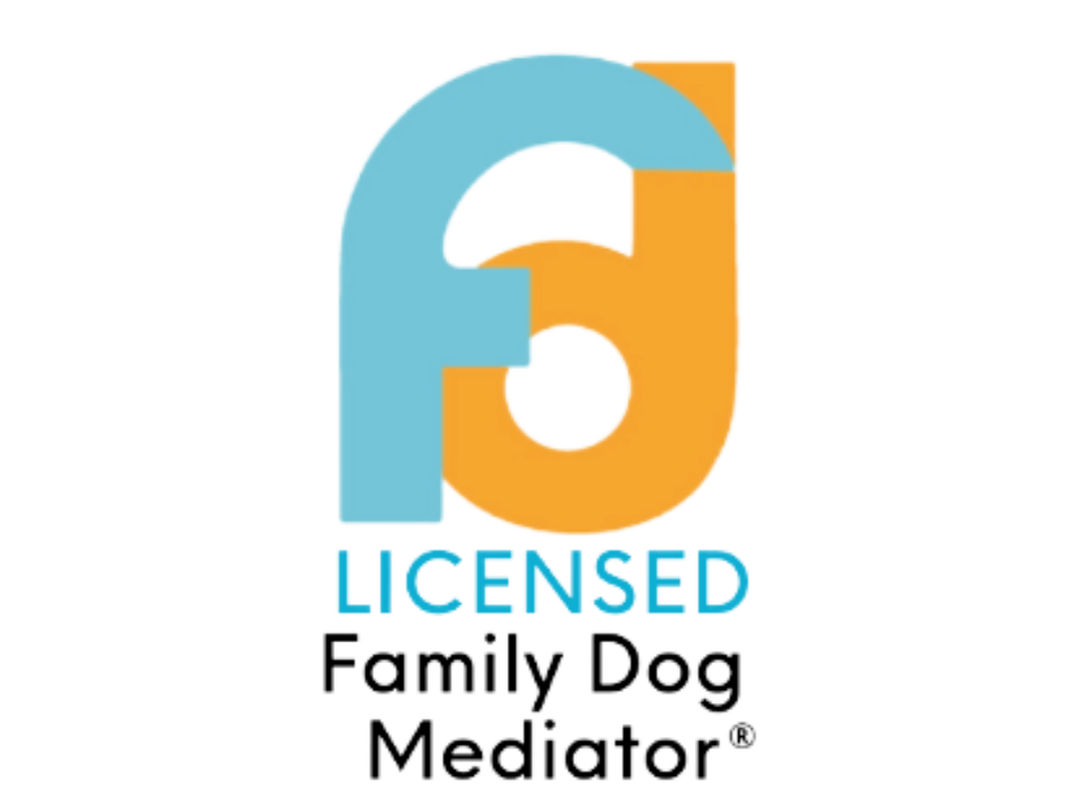|
10/2/2024 1 Comment Choosing a Vet For Your Anxious Pet5 Essential Questions to Ask When Choosing a Vet for your Family Pet TeamChoosing the right vet is not just about medical expertise—it’s about finding someone who understands and prioritizes your dog's emotional well-being, especially if they’re prone to anxiety. While vets and vet techs do their best with the resources and tools they have, they don’t always get the full picture or see what happens behind the scenes at home. That's why it’s so important to remain curious, empathetic, and respectful while advocating for your dog’s needs. Here are five essential questions to ask when selecting a vet for your anxious pet. These will help ensure that the clinic not only takes care of your dog’s physical health but also makes them feel comfortable and safe during every visit. Keep reading... 1. Can I request a specific vet and vet tech for appointments? Why it matters: Dogs are creatures of habit, and familiarity with the same people can drastically reduce their stress levels during vet visits. An anxious dog might feel overwhelmed when meeting new faces, but seeing the same vet and vet tech consistently can help build trust and a sense of security. This trust is especially important for dogs who struggle with the stress of medical exams. What to look for: Look for clinics that allow you to request specific vets and techs for your appointments. A consistent team will get to know your dog’s triggers and needs, allowing them to adapt their approach. Over time, this familiarity can help your dog feel more at ease, knowing what to expect and who will be handling them. What to avoid: Be cautious of clinics where there’s frequent staff turnover or where it’s difficult to request the same team. A rotating team might not have the chance to form a relationship with your dog, which can lead to increased stress during visits. If the clinic doesn’t seem to value consistency, it may not be the best fit for an anxious pet. How to remain curious and empathetic: Understand that staffing challenges happen—vets and vet techs might have limited control over their schedules. While consistency is important, approach the conversation with empathy. Ask the clinic how they manage anxious pets when consistent staffing isn’t possible. Staying open and asking questions helps you remain informed and fosters collaboration between you and the clinic. 2. Do you offer pre-visit medications to reduce stress? Why it matters: For highly anxious dogs, the stress of a vet visit begins long before you walk through the clinic doors. Pre-visit medications or calming supplements can help ease their anxiety, making the entire process more manageable. Reducing stress before you even arrive at the clinic can set a more positive tone for the visit. What to look for: Choose a clinic that is open to discussing pre-visit medication or natural calming aids. These might include anti-anxiety medications, pheromone sprays, or calming treats. A vet who offers these solutions understands the emotional aspect of vet visits and is proactive in addressing your dog’s stress before it escalates. What to avoid: Avoid clinics that dismiss your concerns about anxiety or suggest that your dog will “just get over it.” If a vet doesn’t offer pre-visit calming strategies or isn’t open to discussing anxiety management, they may not fully grasp the emotional toll these visits can have on pets and owners alike. Remaining curious: Remember that not every vet is trained in behavioral science, and they may not be familiar with all anxiety-reducing options. Stay curious and empathetic when discussing your concerns. Ask if they’ve had experience with anxious pets and what their preferred approach is. They might not have all the answers right away, but expressing your willingness to work together can encourage a collaborative atmosphere where you both learn what works best for your dog. 3. Can I handle or be with my dog during the procedure? Why it matters: For many dogs, having their owner nearby can be a source of comfort, especially during potentially stressful procedures like vaccinations or exams. Being present allows you to provide reassurance and helps your dog feel safer. When your dog is less anxious, the entire procedure may go more smoothly for everyone involved. What to look for: Look for a clinic that is open to allowing owners to be present during certain procedures. Some clinics will let you help comfort your dog by holding them or simply being there to offer soothing words. This can help reduce your dog’s stress and improve their overall experience. What to avoid: Be cautious if a clinic has rigid policies that prevent owners from being involved without explanation, particularly during minor procedures. If the vet isn’t open to discussing your role in keeping your dog calm, it could be a sign they prioritize efficiency over your dog’s emotional well-being. That said, there are legitimate reasons some clinics may prefer to handle certain procedures without owners present for safety or focus reasons—what’s important is the willingness to explain why. How to remain curious and empathetic: Ask the clinic to explain their reasoning if they prefer you not to be in the room. In some cases, they might feel it’s safer or easier to complete a procedure without an owner present. Stay open to understanding their perspective—after all, vets want what’s best for your pet, too. You can remain empathetic while still advocating for your dog’s comfort by asking if there are other ways you can help, such as calming your dog beforehand or offering support after the procedure. 4. Are you familiar with Cooperative Care or Low Stress handling? Why it matters: Cooperative Care, Fear Free™, and Low Stress Handling® techniques are specifically designed to reduce fear, anxiety, and stress in pets during vet visits. Vets trained in these methods focus on handling pets gently, using positive reinforcement, and minimizing discomfort. This makes visits less stressful for both you and your dog, and can significantly improve your dog’s perception of the vet clinic over time. What to look for: Seek out clinics where staff members are certified in Fear Free or Low-Stress Handling® techniques. These clinics may offer desensitization visits or allow dogs to be more actively involved in their care through cooperative techniques (such as teaching your dog to offer a paw for a blood draw). They also focus on minimizing stress through distraction, positive reinforcement, and environmental adjustments. What to avoid: Avoid clinics where fear or stress in pets is treated as an afterthought. If the staff seem rushed or use forceful restraint methods without considering alternative approaches, it may not be the best fit for an anxious dog. This could lead to more negative associations with vet visits, making it harder to help your dog feel comfortable in the future. How to remain curious and empathetic: Keep in mind that many vets and vet techs are doing their best with the tools they have. Fear Free certification is a relatively new concept, and not all professionals may be familiar with it yet. However, this doesn’t mean they don’t care about your dog’s emotional well-being. If your vet isn’t familiar with these methods, ask if they’re open to learning more. Share resources or offer to bring up cooperative care techniques, and approach the conversation with curiosity and empathy. After all, we’re all learning, and it can be a collaborative process. 5. Do you offer Happy Visits? Why it matters: Happy Visits are non-medical trips to the vet’s office that allow your dog to explore, meet the staff, and leave without any stressful procedures. These visits help build positive associations with the clinic, so future visits are less intimidating. Over time, your dog will come to see the vet as a fun and rewarding place, rather than one to fear. What to look for: Find a clinic that encourages or offers Happy Visits, where your dog can come in just to say hi, get some treats, and leave without an exam. This helps your dog become more familiar with the vet office environment without the added stress of a medical procedure. A vet who supports these visits understands the long-term importance of building trust and confidence in anxious dogs. What to avoid: If a clinic is solely focused on efficiency and medical care, they may dismiss the importance of Happy Visits. Avoid places where your dog is rushed in and out without any chance to acclimate to the environment. This lack of consideration for your dog’s emotional needs can make each visit more stressful than it needs to be. How to remain curious and empathetic: Not all clinics are set up to offer Happy Visits, and that’s okay. If the clinic doesn’t offer them, ask how they approach anxiety management in other ways. Stay open to the idea that even if Happy Visits aren’t possible, other strategies like stress-reducing waiting room setups, separate dog and cat areas, or quick, calm exams can make a big difference in how your dog perceives the clinic. Empathy for the limitations vets may face—such as busy schedules or space constraints—can help you find a solution that works for both parties. Choosing the right vet for your anxious dog means finding a clinic that balances excellent medical care with a deep understanding of your pet’s emotional needs. Remember, vets and vet staff are often working hard with the resources they have, and they may not always have the same perspective or knowledge about behavior that you do. Stay curious, ask questions, and approach the process with empathy, knowing that both you and the vet want the same outcome: a healthy, happy, and less stressed dog. If you're looking for more detailed guidance on how to prepare your dog for vet visits, the Miss Behavior Membership program offers step-by-step training, exclusive resources, and live support to help reduce your dog’s anxiety and build happier handling skills. Join the Miss Behavior Membership today! Watch Dexter's Vet Prep Journey
1 Comment
Lisa
10/4/2024 08:27:15 am
This is a well thought out article with great advice. I love the reminders to remain curious and empathetic to the veterinary staff while continuing to advocate for your anxious dog.
Reply
Your comment will be posted after it is approved.
Leave a Reply. |
|
- Home
- About
- Blog
- Services
- Membership
-
Courses & Freebies
- All Courses
- FREE Boredom Buster Recipes
- COURSE: Building Resilience in your Family Dog
- COURSE: Managing the Leash Walk
- Potty Training COURSE
- Paws Off COURSE
- COURSE: Managing the Leash Walk
- FREE Attention Building Challenge
- FREE Scratchboard Training
- FREE Rest and Recovery Round-Up
- FREE Body Language 101
- Contact
- Home
- About
- Blog
- Services
- Membership
-
Courses & Freebies
- All Courses
- FREE Boredom Buster Recipes
- COURSE: Building Resilience in your Family Dog
- COURSE: Managing the Leash Walk
- Potty Training COURSE
- Paws Off COURSE
- COURSE: Managing the Leash Walk
- FREE Attention Building Challenge
- FREE Scratchboard Training
- FREE Rest and Recovery Round-Up
- FREE Body Language 101
- Contact
Search by typing & pressing enter




 RSS Feed
RSS Feed





